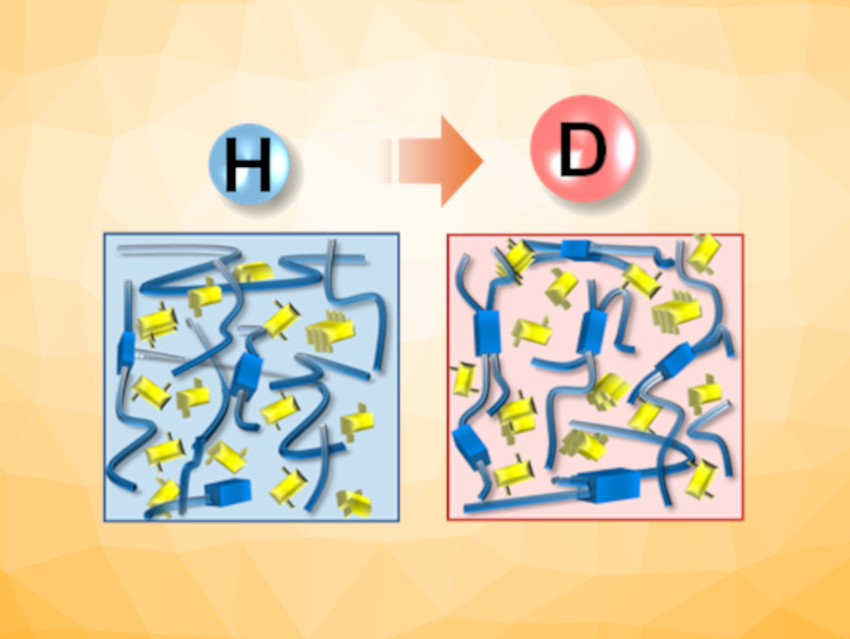The deuteration of organic compounds can help researchers to understand their structures and functions. For example, the solution structure of conjugated polymers can be resolved with the help of deuteration, using small-angle neutron scattering (SANS). Due to the significant difference between the scattering lengths of the two hydrogen isotopes 1H and D, the scattering contrast can be enhanced by deuteration.
Understanding the solution and solid structures of polymers is important for the development of high-efficiency, stable organic solar cells (OSCs). However, studies about the isotopic effects of the casting solvents on the aggregated structures of photovoltaic polymers are rare.
Long Ye, Tianjin University, Collaborative Innovation Center of Chemical Science and Engineering (Tianjin), Tianjin, China, and colleagues have studied the impact of deuterated solvents on the thermal behavior, aggregated structures, and device performance of photovoltaic polymers. In this approach, the tedious deuteration of conjugated polymers is not required. Instead, the team used deuterated organic solvents, i.e., deuterated chloroform and deuterated o-dichlorobenzene (DCB), as casting solvents.
The team found that deuterated solvents can facilitate the characterization of the solution structure of photovoltaic polymers and allow to obtain data with a much higher signal-to-noise ratio. In addition, the relatively poor miscibility of deuterated solvents and photovoltaic polymers enhances the π-π stacking order of the polymers, delivering blend films with higher crystallinity and optimized morphology, as well as greatly enhancing the thermal stability. The work showcases the potential of deuterated solvents in OSC processing.
- A generic approach yields organic solar cells with enhanced efficiency and thermal stability,
Mengyuan Gao, Kai Zhang, Chunyong He, Hanqiu Jiang, Xiong Li, Qingchun Qi, Kangkang Zhou, Yu Chen, Wenchao Zhao, Long Ye,
Aggregate 2022.
https://doi.org/10.1002/agt2.289



